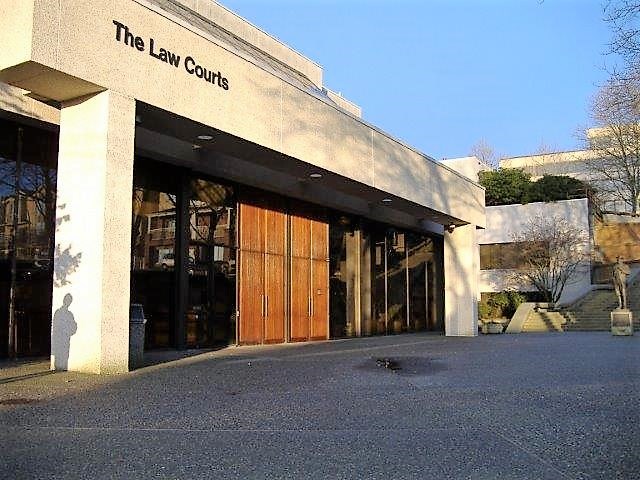A B.C. Supreme Court judge ruled July 3 that a common law building scheme that affects 200 Squamish properties is obsolete and should be cancelled.
Garibaldi Estates homeowners Dennis and Andrea Smith objected to the proposal by Clearwater Park GP Inc. to build a fourplex next door.
They feared such a development would trigger a wave of density that would change the character and livability of the 1960s and 1970s built neighbourhood that includes some modest houses, big yards and large setbacks.
The Smiths sought an injunction to limit Clearwater to one dwelling. But Justice Frits Verhoeven disagreed.
Verhoeven, who presided for two days in May at the New Westminster courthouse, dismissed the Smiths' petition because of "other circumstances the court considers material."
Verhoeven said he was "not without sympathy" for the Smiths and others who wished to preserve their low-density, single-family neighbourhood.
"However, in relation to the exercise of the court's residual discretion, the need of the community for additional housing is also relevant," he wrote.
Squamish's population, he said, grew by 22.2% between 2016 and 2021 to 23,819, making it one of Canada's top 10 fastest-growing communities. It is expected to top 40,000 by 2040, the judgment reads.
"Consideration of the public interest does not favour the position of the Smiths that the court should refuse to cancel the building scheme."
The Smiths argued Clearwater bought the land last September, knowing about the restrictive covenant created in 1959 by Garibaldi Park Estates Ltd. (GPEL). The District of Squamish gave Clearwater a development permit the week after it bought and the company applied for a building permit.
It argued the building scheme was a "historical anomaly" that acted as a barrier to increasing housing supply, a priority of the provincial government.
"I am not persuaded that cancellation of the building scheme would be unjust or inequitable," Verhoeven wrote. "Anyone actually reading the building scheme with care would have had some doubts about its continued applicability."
Verhoeven said GPEL "dissolved long ago" in 1983 and the building scheme could not have been enforced. Under Clause 3, it allowed GPEL to authorize "duplex, semi-detached and/or multiple dwelling" units.
"Therefore, the prohibition against multi-family housing was very limited. It was a 'soft' commitment, only."
So soft, that it had been ignored, because of the volume of renovations, secondary suites, storage and utility sheds added.
"These circumstances further support my finding that the building scheme is obsolete," Verhoeven said.
The decision bolsters the NDP government's 2023-passed Housing Statutes (Residential Development) Amendment Act and amendments to the Local Government Zoning Bylaw Regulations. The province effectively ended single-family zoning and required municipalities, by the end of June 2024, to amend zoning bylaws to allow higher density housing.
Verhoeven awarded costs to Clearwater, to be paid by the Smiths.
"There is no order for costs for or against Squamish."



